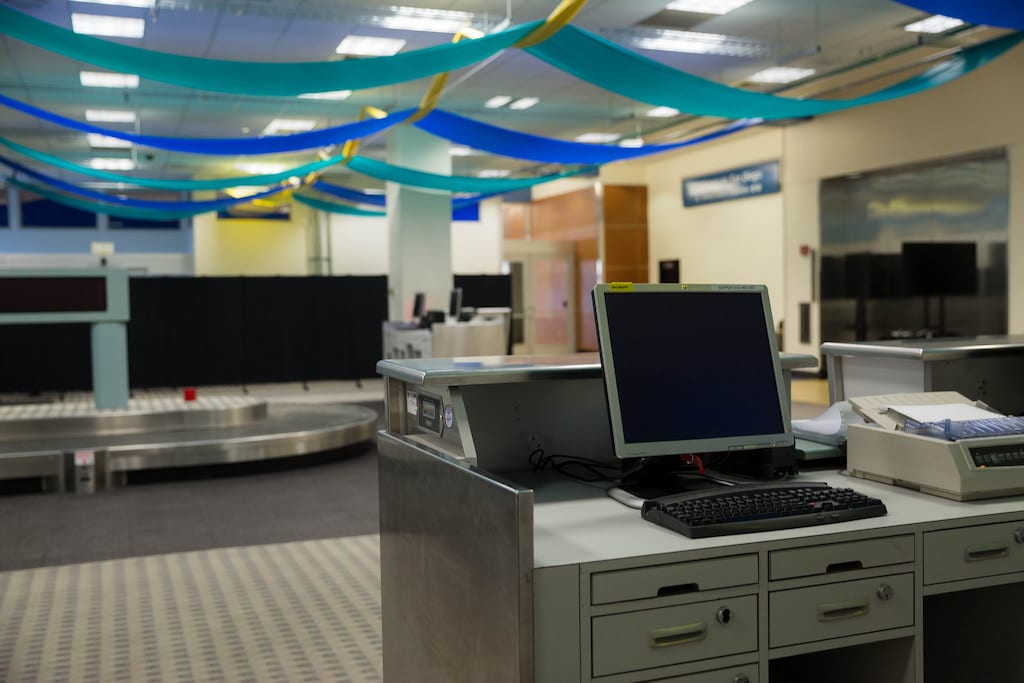Skift Take
Most U.S. airports are clunky, publicly run enterprises, and they innovate slowly. Plus, their largest tenants — airlines — can be cheap, and unwilling to pay more than they need to. But a few airports are innovating, and that's good news for passengers.
The typical major U.S. airport is a large bureaucratic organization staffed by public-sector employees who can be averse to change.
It’s part of the reason airports were slow to embrace Uber and Lyft, even though many passengers prefer rideshares over taxis. Airports clung to old policies, as many had long-standing contracts with taxi companies, plus parking revenue to protect.
But some U.S. airports are embracing innovation, including two — San Diego International and Dallas/Fort Worth International —that I highlighted in a story on Monday. San Diego recently started a 16-week program that helps a handful of startups test their ideas in an airport environment. Several companies participating never could win a “real” airport contract because they’re not established enough. But if they succeed in the test, they may have a chance in the future.
Dallas/Fort Worth, meanwhile, in August hired an executive vice president for innovation, charged with overseeing everything from how customers can go from curb to gate using biometrics to how the airport will accommodate autonomous vehicles on taxiways and on the terminal roadway.
Given their status as public entities, I’m not sure U.S. airports ever will innovate as much as a private firm, or even a privately owned airport. But this is probably a good start.
— Brian Sumers, Senior Aviation Business Editor [[email protected], @briansumers]
Stories of The Week
How Two U.S. Airports Are Unshackling Bureaucracy to Give New Businesses a Try: Because it’s not easy for new companies to win a contract at a U.S. airport — most airport boards prefer established firms — a lot of startups don’t even try. But that bothered San Diego International Airport officials, who wanted to foster fresh ideas. So they created a program to allow new companies to test their ideas in a real airport.
Alaska Airlines Hints It May Finally Join the Oneworld Alliance: Alaska Airlines held its annual investor day on Tuesday, and Chief Commercial Officer Andrew Harrison said the carrier could finally join Oneworld, though not as a full-fledged member. Instead, the airline is looking at the alliance’s Connect model, which is meant for smaller, more regional airlines.
Air France-KLM Launches a Unit to Churn Out Travel Startups: Better late than never, right? Air France-KLM is the latest major airline group to launch an internal group to foster startups. My colleague Sean O’Neill has the scoop on what the company plans, and how it compares to what its competitors are doing.
Virgin Atlantic Explores Flybe Acquisition: Virgin Atlantic is a unique airline because it has little short-haul feed into its largest hubs. It had tried at one point to operate its own short-haul airline, called Little Red, but that didn’t work. Now comes word the airline is exploring a closer relationship with struggling UK regional airline Flybe, including perhaps an acquisition.
FAA Blasts Newark Airport for How It Charges Airline Fees: This is the latest in the ongoing battle between the public entity that runs Newark Airport and United Airlines, its largest tenant. United has argued the airport authority has no systemic process to determine how it charges rent, and the Federal Aviation Administration has agreed. The FAA also criticized the airport operator for diverting some of its revenue to non-airport projects. That’s a no-no. Bloomberg has details.
Want Faster Airline Customer Service? Try Tweeting: I’ve read other versions of this story over the years, but what The New York Times recommends is not bad advice. You can, with certain airlines, receive better and faster customer service through Twitter than over the phone. But Twitter, as much as I love it, is a niche operation these days. I’d rather see more airlines embrace chat.
Joon Is Turning Head Rests Into Flat Beds: We all have guilty pleasures, right? When I’m bored, or want to procrastinate, I read One Mile at a Time, Ben Schlappig’s sassy blog. Last week, one of his contributors wrote about how Joon, Air France’s long-haul, lower-cost airline, will help passengers create bed-like cocoons if they book all four middle seats in the airline’s Airbus A340s. It’s an interesting concept. Perhaps when Joon goes out of business — it can’t survive, right? — Air France can adopt it.
Inside United Airlines Flight Training Center: CNBC’s Erin Black toured United’s pilot training center in Denver, and she produced an interesting look at how one of the largest airlines in the United States maintains its safety culture.
Contact Me
Skift Senior Aviation Business Editor Brian Sumers [[email protected]] curates the Skift Airline Innovation Report. Skift emails the newsletter every Wednesday. Have a story idea? Or a juicy news tip? Want to share a memo? Send him an email or tweet him.
The Daily Newsletter
Our daily coverage of the global travel industry. Written by editors and analysts from across Skift’s brands.
Have a confidential tip for Skift? Get in touch
Tags: airline innovation report, u.s. airports
Photo credit: San Diego International has a 16-week program that nurtures startups and helps them prepare to win future contracts. Companies can test their ideas in the airport's old and empty commuter terminal, pictured here. San Diego International Airport
